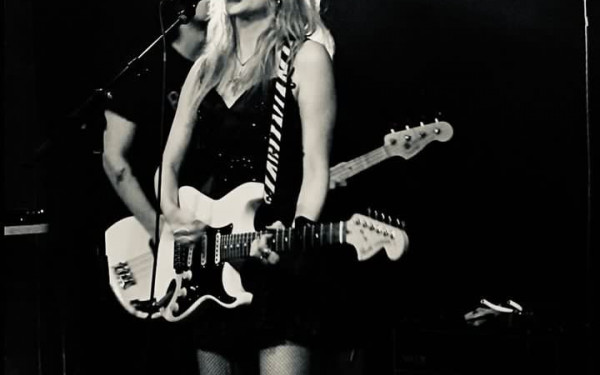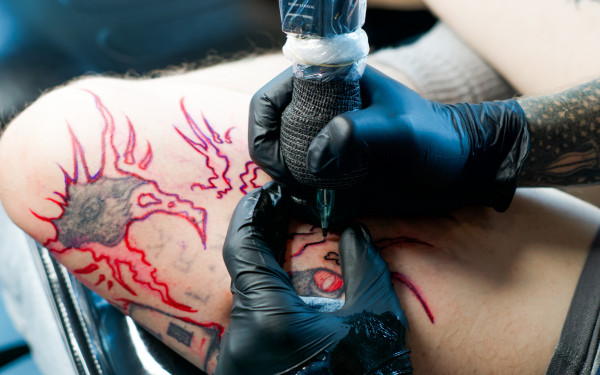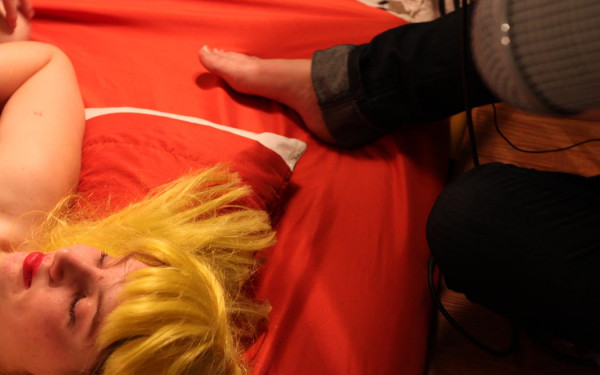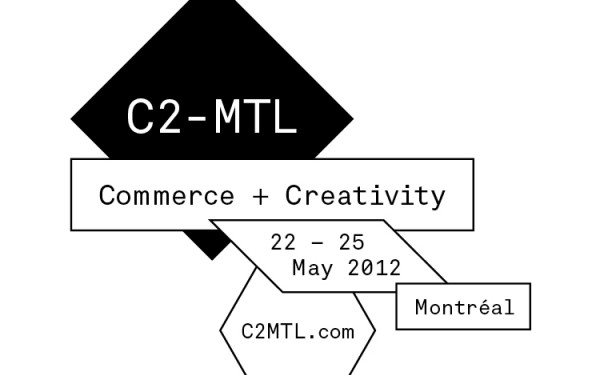Mapping the Skin
The Creative Process of a Home-Based Montreal Tattoo Artist
Kevin Ward, a Montreal tattoo artist, has devoted his life to creating masterpieces on human skin. He sets no boundaries in his creative process and attempts to produce magic with needles and ink.
Curiously enough, for someone who works in an industry marked by its permanence, he dedicates his success to embracing the process of failure.
“If we don’t fail we don’t learn, and if we don’t learn we can’t become more creative,” Ward said. Failing as a tattooist is not an option, but failing when practicing a piece is crucial to ensure perfection in the end result.
Ward worked as an airbrush and digital illustration artist for nearly 15 years before he discovered he could make a generous living working in the tattoo industry.
After that, with six years of tattooing under his belt, he established a name for himself and a client base of nearly 4000 people. This is what prompted him to open up his own tattoo shop from home.The decision to start his own business was driven by his need to eliminate the drama that comes with working in a tattoo shop.
He says there is too much competition between artists and many of them start getting an “I-own-this-person-mentality.” Ward believes many of these tattooists are hardly artists since their only goal is to gain as many clients as possible.
Now that Ward has branched off on his own, he does miss the social opinions and ideas from some of the other artists, but altogether he is happier working independently.
Tattooing is a special practice to Ward, and he has his own notion of what his work signifies.
“I’m mapping people’s lives by mixing an idea with an artistic outlook and putting it on someone forever in a way that will satisfy them the most,” he explained.
Most of his art is based towards realism—he specializes in black and grey pieces. Some of his finest works include motorbikes, portraits, animals, cars, skulls and women.
Ward’s signature style is dark and wicked, so most of his pieces have an edgy and breathtakingly real-life feel to them.
“The monochromatic aspect of everything I’ve ever tattooed has a classy feel to it, one that coloured portraits and drawings just don’t have,” Ward said.
“I’m mapping people’s lives by mixing an idea with an artistic outlook and putting it on someone forever in a way that will satisfy them the most.”
It was Ward’s fearlessness that drew him to tattooing.
He says his creative process works as a mechanical filter, as he analyzes hundreds of different styles and ideas, hand picks the main theme and then creates one picture that flows.
He knows his art form requires him to actually see the product done on paper before putting it on skin, and that means using his past experience to determine what style works and how it will best fit together.
“You need to filter everything you see in your brain and project it from your brain to your hand. You’re jumping off a cliff and not looking back,” Ward said.
He has high standards for himself, and it’s easy for him to tell an exceptional tattoo from a poor one.
“A good tattoo sits on the skin well, the lines are defined and the shadows are defined,” he said. He went on to describe how a tattoo needs to be strategically placed so it highlights a person’s body. Details are not to be forgotten.
“When you stand back from a tattoo and look at it as a whole it should look good, but getting up closer should look even better.”
It’s tough to determine when a piece is finished, but Ward knows when his brain says “that’s enough.” He knows he’s gone too far when an image doesn’t flow anymore.
When a piece of art gets past that point, it gets complicated. Structure is important to guide the human eye and Ward says that a tattoo is “like reading a superhero comic book. You can follow these pages really easily.”
Mistakes are inevitable for any artist, so when Ward feels he’s created a bad drawing, he throws it out—it’s a learning process. Sometimes he will draw hundreds of different pictures for fun until he finds one he can work with.
“You get a ‘eureka’ moment where you remember your creativity. It’s all about the trying and the effort,” he said.
Ward’s philosophy is that for each success you will have an equal number of failures. “You have to win 51 per cent of the time because that way, you’re always moving forward,” he added.
Overall, Ward has learned to not be affected by anyone’s opinion. He doesn’t base his art on the opinions of others, but instead he will use criticism to get better.
He encourages aspiring tattoo artists to draw every day and most importantly “never say you can’t do something. Whether you say ‘I can’t or I can’t’ you are always right.”

4_900_900_90.jpg)
3_900_900_90.jpg)





